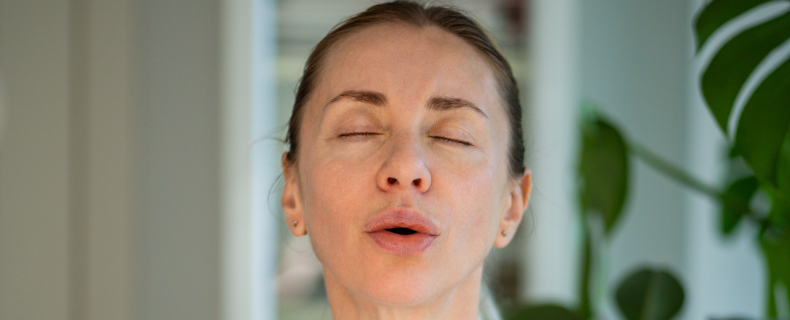
San Francisco and Marin CA
Breathing through your mouth occasionally—such as during a workout or when your nose is congested—is completely normal. However, if mouth breathing becomes a daily habit, it can pose serious risks to your oral and overall health. At Glen Park Dental, we believe in educating our patients on how seemingly small habits can have long-term consequences for your smile and wellbeing. Let’s break down how chronic mouth breathing can harm your teeth and what you can do to prevent it.
Why Is Mouth Breathing a Problem?
Mouth breathing, especially when it becomes habitual, can significantly disrupt the natural balance in your mouth. Here’s how it affects your dental health:
1. Dry Mouth
Saliva plays a vital role in protecting your teeth. It washes away food particles, neutralizes acids, and keeps harmful bacteria under control. When you breathe through your mouth, your saliva evaporates more quickly, creating a dry environment that’s ideal for bacteria to thrive.
2. Increased Risk of Tooth Decay
Without enough saliva to buffer acids and remove debris, bacteria can erode enamel faster—leading to cavities and decay. This is one of the most direct effects of long-term mouth breathing.
3. Gum Disease
Bacteria in a dry mouth can also collect around the gumline, leading to inflammation and the early stages of gum disease. Over time, this can progress to more serious periodontal issues if left untreated.
4. Chronic Bad Breath (Halitosis)
A dry mouth combined with bacterial buildup often results in persistent bad breath. This is due to the sulfur compounds released by bacteria—especially in a low-saliva environment.
5. Developmental Issues in Children
Children who breathe through their mouths while growing are at risk for altered facial and jaw development.
This can lead to:
- A narrow, high-arched palate
- Receding or underdeveloped jaw structure
- Bite misalignment
These structural changes may even contribute to future airway problems, including sleep apnea.
6. Increased Risk of Sleep Apnea
Mouth breathing during sleep can contribute to airway collapse. When the tongue and surrounding soft tissues fall back, they can block airflow. This can lead to obstructive sleep apnea (OSA)—a serious condition where breathing is repeatedly interrupted throughout the night.
Health Risks Linked to Sleep Apnea
Mouth breathing can both cause and worsen sleep apnea.
The condition has been associated with several serious health issues, such as:
- High blood pressure and heart disease
- Daytime fatigue and lack of concentration
- Increased risk of accidents
- Obesity and metabolic problems
- Anxiety, depression, and cognitive decline
How Mouth Breathing Leads to Sleep Apnea
There are a few ways that habitual mouth breathing contributes to airway obstruction:
- Airway Collapse: Mouth breathing increases the chance that soft tissues will block the throat, especially when sleeping on your back.
- Poor Muscle Tone: Nasal breathing supports proper muscle tone in the airway, helping it stay open. Mouth breathing, on the other hand, weakens this tone.
- Irritation and Swelling: Breathing through the mouth dries out and inflames the throat, narrowing the airway even further.
How to Prevent or Manage Mouth Breathing
Addressing mouth breathing depends on its underlying cause.
Here are a few approaches:
- Allergy Treatment: If allergies are the culprit, a visit to an allergist can help.
- Surgical Intervention: Enlarged tonsils or adenoids may require removal, especially in children.
- Train Yourself to Nasal Breathe: Some people use medical tape to gently keep the lips sealed during sleep to encourage nose breathing (consult with a professional before trying this).
- Oral Appliance Therapy: A non-invasive option available at Glen Park Dental.
What Is Oral Appliance Therapy?
At Glen Park Dental, we offer custom-made oral appliances to help support healthy breathing during sleep. These devices, similar to mouthguards, gently reposition the jaw and tongue to keep the airway open and reduce the risk of apnea or nighttime mouth breathing. Each appliance is made using digital scans and X-rays to ensure a comfortable, precise fit.
Get Help for Mouth Breathing and Sleep Apnea in San Francisco
Mouth breathing isn’t just a minor inconvenience—it can lead to serious issues like tooth decay, gum disease, and even sleep apnea. At Glen Park Dental, we’re here to help you address the root of the problem and protect your long-term health.
📞 Call us today at (415) 799-3900
📍 Visit us at 4 Joost Ave, San Francisco, CA 94131
Or contact us online to book an appointment and learn more about your treatment options.


